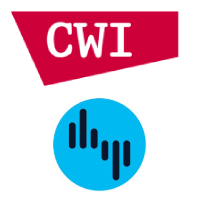-
Towards clinically acceptable deep learning-based auto-contouring for brachytherapy of cervical cancer
by Vangelis Kostoulas from Radiotherapy Department, Leiden University Medical Center
How important is the architecture of a deep learning model used for auto-contouring in brachytherapy? What challenges do the data bring us? Is it possible to achieve clinically acceptable results, and if yes, how?.
-
Deep learning-based automated radiotherapy planning validation for oropharyngeal cancer patients
by Frank Dankers from Radiotherapy Department, Leiden University Medical Center
Radiotherapy treatment planning for head and neck cancer (HNC) is a labor-intensive process which can take up to a day per patient. Additionally, plan quality is highly dependent on the experience of the treatment planner. We explore the performance of deep learning-based autoplanning in RayStation, which claims to generate clinically acceptable and deliverable treatment plans within 15 minutes.
Previous
-
Language models in a medical setting
by Liza King from Autoscriber
-
Training large language models
by Renzo Scholman from Research Institute for Mathematics & Computer Science (CWI)


